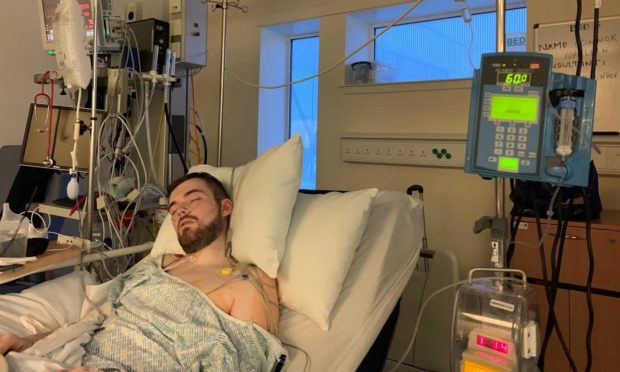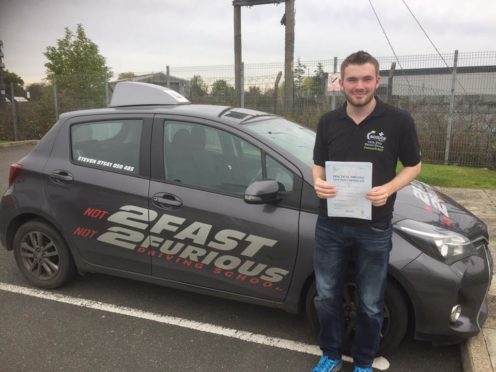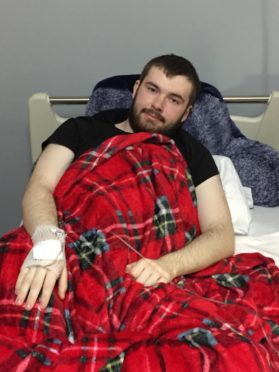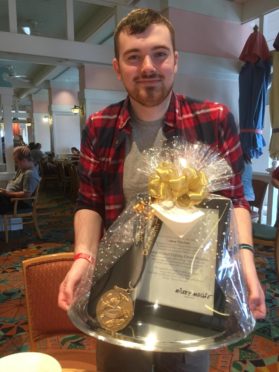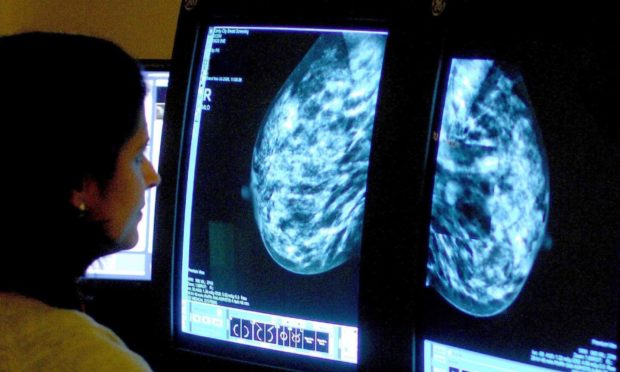A teenage cancer survivor has shared his story as part of a new mental health campaign to support young patients.
The Teenage Cancer Trust’s new campaign, titled #NotOK, is calling for tailed psychological support for young cancer patients.
Kirkcaldy resident Connor MacLean, 21, has backed the campaign.
He said when he was first diagnosed with testicular cancer when he was just 18, he felt “crushed” and “confused.”
A life-changing diagnosis
The diagnosis turned the young man’s life upside-down and in the space of a few days he went from a regular student starting his first year at university to a scared teen under a huge amount of stress.
He said: “My life did a 180.
“Before I got the news I was pretty social.
“I was just starting my first year at uni so we were going out all the time and then I sort of just stopped.
“My friends were really supportive and we talked about my cancer sometimes, but a lot of the time we tried to talk about other stuff.
“It was always the first thing that people who didn’t know me would ask, they were just asking about my health and how I was doing.
“It brought in quite a few challenges – getting used to a new normal.
“You’ve got a whole new routine and it can feel quite lonely at times.”
Shutting off and mental health support
Connor was driven into isolation by his new life, saying: “At one point I just shut off.
“I didn’t have any energy, I felt tired all the time.”
Luckily, the Stirling University student was given the support of a psychologist who soon became essential to his recovery.
He said: “In my experience, it helped me get over what happened and I really wouldn’t be where I am without it.
“I was having quite bad panic attacks and it really helped with that.
“I think the option should be available to everyone.
“Mental health is a big part of a cancer and your recovery.”
‘It makes you feel a bit more normal’
The Teenage Cancer Trust were also able to introduce Connor to people his own age who also had cancer.
He added: “It makes you feel a bit more normal.
“I think that the biggest piece of advice I could give – and its hard to tell someone this – but don’t close off, speak to people that you trust.”
The 21-year-old, who is in remission and plans to attend Robert Gordon University next year, has joined the charity in their calls for increased mental health support for young people who are undergoing cancer treatment.
Half of young cancer patients report poor mental health
A new study from the cancer trust has revealed that over a third of the UK’s young people with cancer who were surveyed could not get the support they felt they needed.
The study also reports that 52% of young people said their mental health and wellbeing had been very poor (17%) or poor (35%) during their treatment.
The new information has pushed the Teenage Cancer Trust to call on the UK and Scottish governments to fill in the gaps and provide quality mental health support for young people.
Liz Watt, Teenage Cancer Trust lead nurse in Scotland said: “There isn’t consistent access to specialist mental health support across Scotland for young people with cancer, meaning some can access that support while others who live in a different region can’t.
“Young people are at a unique stage in their lives. They are discovering who they are and undergoing rapid developmental changes.
“A cancer diagnosis pauses that; they suddenly lose any newfound independence, and they don’t know whether they’re going to live or die.
“Tailored and comprehensive psychological support is vital wherever they live in Scotland to help them deal with the impact of cancer. Without it, there’s a risk young people’s mental health trauma will outlive their cancer diagnosis.
“That’s why we’re calling on the Scottish Government, alongside the other UK Governments, to keep young lives on track by ensuring this desperately needed specialist support is available from diagnosis, regardless of postcode.”
